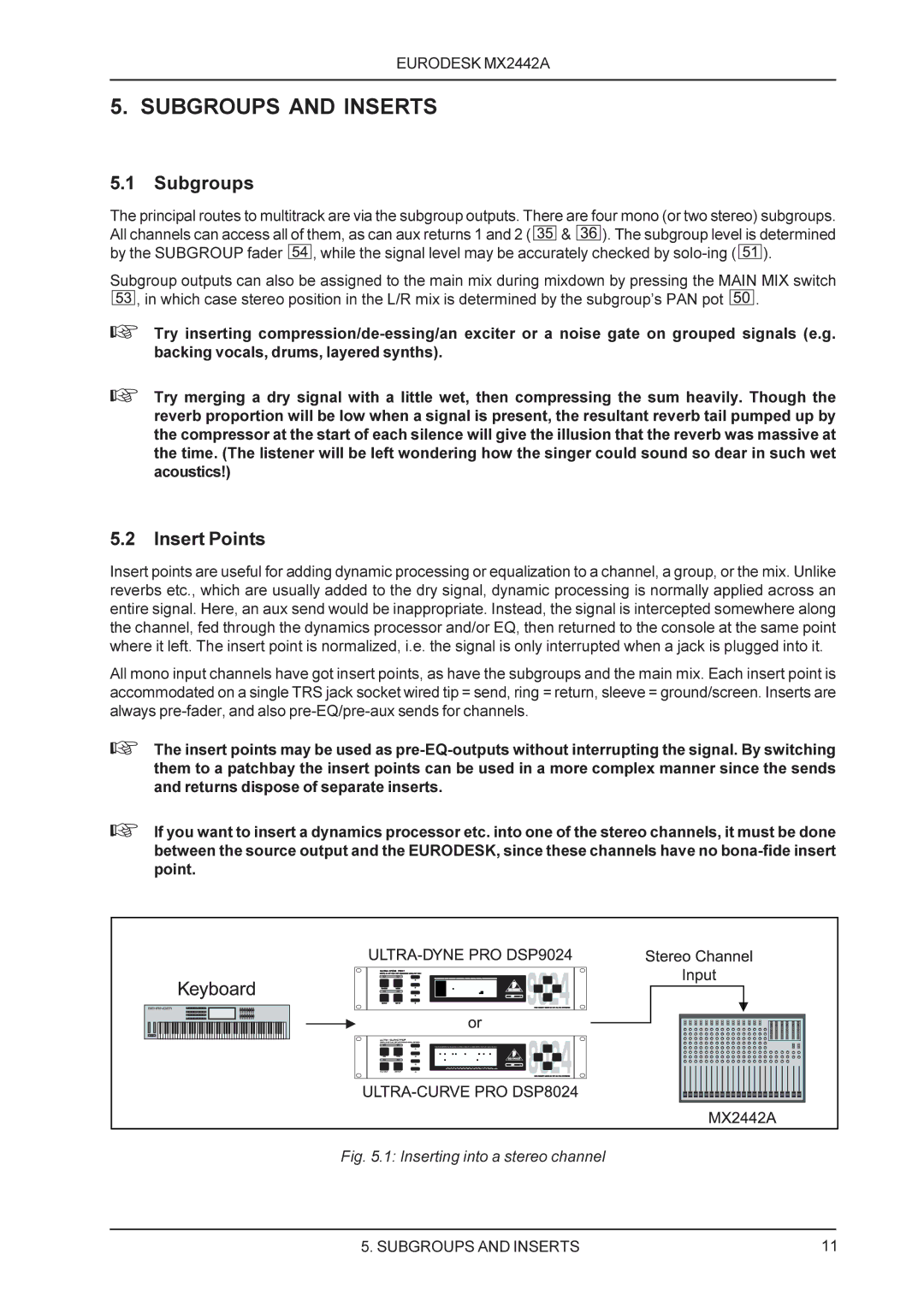
EURODESK MX2442A
5. SUBGROUPS AND INSERTS
5.1 Subgroups
The principal routes to multitrack are via the subgroup outputs. There are four mono (or two stereo) subgroups. All channels can access all of them, as can aux returns 1 and 2 ( ![]() &
& ![]()
![]()
![]() ). The subgroup level is determined by the SUBGROUP fader
). The subgroup level is determined by the SUBGROUP fader ![]() , while the signal level may be accurately checked by
, while the signal level may be accurately checked by ![]() ).
).
Subgroup outputs can also be assigned to the main mix during mixdown by pressing the MAIN MIX switch ![]() , in which case stereo position in the L/R mix is determined by the subgroup’s PAN pot
, in which case stereo position in the L/R mix is determined by the subgroup’s PAN pot ![]()
![]()
![]() .
.
+Try inserting
+Try merging a dry signal with a little wet, then compressing the sum heavily. Though the reverb proportion will be low when a signal is present, the resultant reverb tail pumped up by the compressor at the start of each silence will give the illusion that the reverb was massive at the time. (The listener will be left wondering how the singer could sound so dear in such wet acoustics!)
5.2 Insert Points
Insert points are useful for adding dynamic processing or equalization to a channel, a group, or the mix. Unlike reverbs etc., which are usually added to the dry signal, dynamic processing is normally applied across an entire signal. Here, an aux send would be inappropriate. Instead, the signal is intercepted somewhere along the channel, fed through the dynamics processor and/or EQ, then returned to the console at the same point where it left. The insert point is normalized, i.e. the signal is only interrupted when a jack is plugged into it.
All mono input channels have got insert points, as have the subgroups and the main mix. Each insert point is accommodated on a single TRS jack socket wired tip = send, ring = return, sleeve = ground/screen. Inserts are always
+The insert points may be used as
+If you want to insert a dynamics processor etc. into one of the stereo channels, it must be done between the source output and the EURODESK, since these channels have no
Fig. 5.1: Inserting into a stereo channel
5. SUBGROUPS AND INSERTS | 11 |
